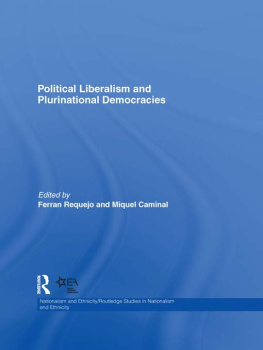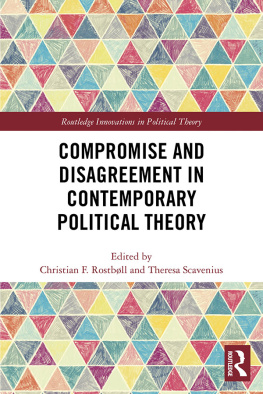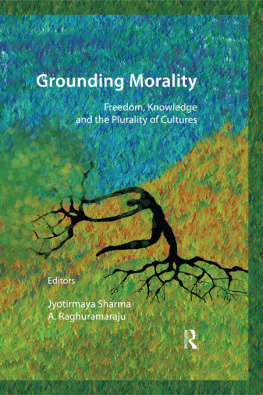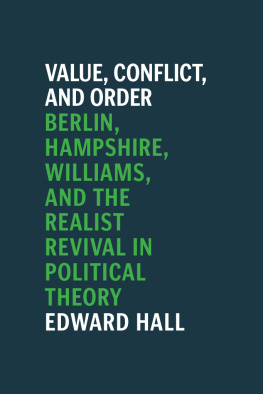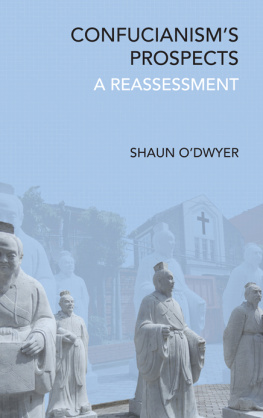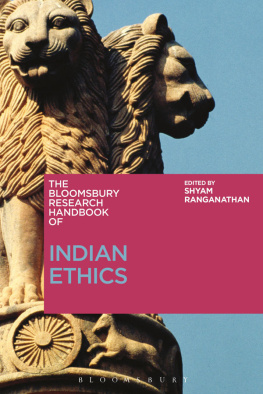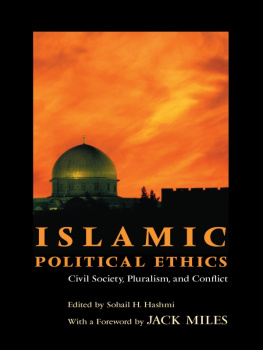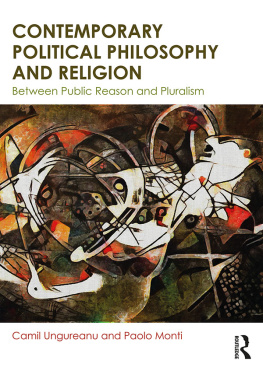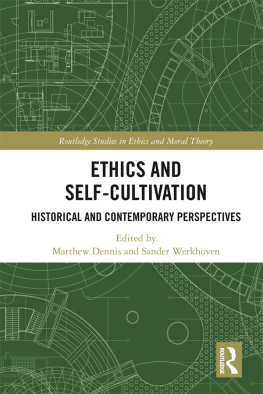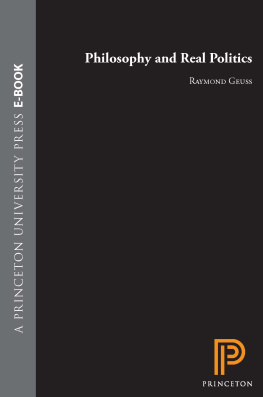RAWLS AND RELIGION
RAWLS
AND
RELIGION
EDITED BY
Tom Bailey and Valentina Gentile
Columbia University Press New York
Columbia University Press
Publishers Since 1893
New York Chichester, West Sussex
cup.columbia.edu
Copyright 2015 Columbia University Press
All rights reserved
E-ISBN 978-0-231-53839-8
Library of Congress Cataloging-in-Publication Data
Rawls and religion / edited by Tom Bailey and Valentina Gentile.
pages cm
Includes bibliographical references and index.
ISBN 978-0-231-16798-7 (cloth : alk. paper)
ISBN 978-0-231-16799-4 (pbk. : alk. paper)
ISBN 978-0-231-53839-8 (e-book)
1. Rawls, John, 19212002. 2. Religion.
B945.R284R39 2015
200.92dc23 2014015955
A Columbia University Press E-book.
CUP would be pleased to hear about your reading experience with this e-book at .
Jacket design by Noah Arlow
References to websites (URLs) were accurate at the time of writing. Neither the author nor Columbia University Press is responsible for URLs that may have expired or changed since the manuscript was prepared.
CONTENTS
SEBASTIANO MAFFETTONE
TOM BAILEY AND VALENTINA GENTILE
CHRISTOPHER J. EBERLE
ROBERT B. TALISSE
PAUL WEITHMAN
ANDREW F. MARCH
PATRICK NEAL
MICAH SCHWARTZMAN
JOHANNES A. VAN DER VEN
JAMES GLEDHILL
PETER JONKERS
ABDULLAHI A. AN-NAIM
SEBASTIANO MAFFETTONE
John Rawls played a pivotal role in the development of contemporary liberal political philosophyindeed, it might even be said that political philosophers live in the era of Rawls. But his sensitivity to religion is often neglected and his own treatment of it often misunderstood. His recently published undergraduate thesis, A Brief Inquiry Into the Meaning of Sin and Faith, and his later autobiographical remarks, On My Religion, speak to his personal sensitivities. And his idea of a well-ordered society inspired by liberal democratic principles and bringing together religious and nonreligious citizens represents a sort of reconciliation between the moral realm and that of politics.
Importantly, the reconciliation that Rawls proposes differs from the liberal standard view. For traditional liberals, religion is an obstacle to peace and stability, and this suspicious attitude leads them to confine religion to the private sphere. Rawlss attitude is different. For him, religion is a constituent part of the liberal democratic res publicahis examples are such religious liberals as Abraham Lincoln and Martin Luther King Jr. So, rather than privatizing religion, Rawls proposes a way to make it fruitful for the whole population.
If religion and politics are reconciled in Rawlss work, their most important encounter is provided by his theory of public reason. This inclusive theory considers religious people as active participants in the life of the liberal democratic republic. In only a few matters of extraordinary political importanceSupreme Court decisions, parliamentary voting, and so onreligious citizens are asked to reformulate their religious arguments in terms that all other citizens can understand. This proviso does not apply unfairly to religious citizens, as some have alleged, since it applies equally to all comprehensive doctrines, including Marxism, utilitarianism, Kantianism, and even Rawlss own account of justice as fairness. And its appeal to a kind of mutual respect among citizens of different value orientations is notably less demanding of religious citizens than many competing liberal theories.
Rawlss theory of public reason nonetheless implies a form of priority of the political over the religious. When matters of basic justice are at stake, it asks that religious or comprehensive arguments be reformulated in terms that all citizens can reasonably accept, but it does not ask the opposite, namely, that shared matters of justice be reformulable in religious terms. The reason for this reflects the liberal problem of justifying political coercion: nobody should be coerced for reasons dependent on comprehensive views. Even we Italians would not want Catholic doctrine to be enforced by the carabinieri! One might therefore object to this priority of the political over the comprehensive as an unjustifiable imposition of liberal democracy on religious citizens and communities, as some critics of liberalism have. Some radicals might even maintain that in Rawlss liberalism not all communities are treated in the same way: the justification for a political community is taken for granted, whereas other communities, and particularly religious ones, have to justify their very existence.
It is the merit of Rawls and Religion that it finally reveals and explores a new and persuasive understanding of the place of religion in Rawlss liberal framework. Tom Bailey and Valentina Gentiles introduction offers a clear and insightful account of the background debates, showing that Rawlss liberalism offers rich, and sometimes neglected, resources for accommodating religions in the political life of liberal citizens. The contributors then explore a range of crucial philosophical, practical, and theological issues regarding Rawlss idea of public reason and its implications for the role of religion in public life. The volume thus makes important contributions to the academic and intellectual debates that have emerged in recent years over Rawlss treatment of religion. I have rarely read a book that combines so well the clarity of the subjects treated with the philosophical acuity of its arguments, and I am sure that readers from various fields and at various levels will learn much from it.
The editors would like to thank Pter Losonczi, Sebastiano Maffettone, and Aakash Singh Rathore for their invaluable advice and assistance in preparing this book. The editors also thank them, Domenico Melidoro, the administrations of LUISS University and John Cabot University, and the International Research Network on Religion and Democracy for their assistance in organizing the conference Between Rawls and Religion: Liberalism in a Postsecular World, at which Christopher Eberle, James Gledhill, Peter Jonkers, Micah Schwartzman, Robert Talisse, Johannes van der Ven, and Paul Weithman were invited to present drafts of their chapters. Alessandro Ferrara, David Rasmussen, Will Kymlicka, David Held, Neera Chandhoke, and Richard Bellamy also provided very helpful advice on the books structure, themes, and publication. Finally, the editors would like to thank all the contributors to the book for their support and cooperation in bringing the book to completion.


